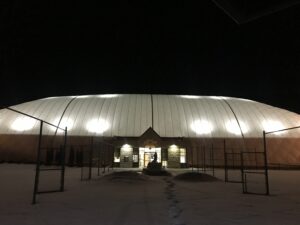Air supported domes are revolutionizing the sports industry by providing year-round playing opportunities, regardless of weather conditions. These innovative structures are changing the game for athletes, teams, and sports organizations across the globe.
Year-Round Training and Competition
Traditionally, many outdoor sports have been limited by seasonal weather changes. Baseball fields covered in snow, soccer pitches turned to mud, and tennis courts rendered unusable by rain have long been common sights. Air domes are changing this reality.
By enclosing outdoor facilities with climate-controlled air structures, sports organizations can now offer consistent playing conditions throughout the year. This extended access has numerous benefits:
- Improved athlete performance through consistent training
- Increased revenue for sports facilities
- Enhanced community engagement in sports programs
- Greater flexibility in scheduling games and tournaments
Cost-Effective Solution
Unlike permanent indoor structures, air domes offer a cost-effective alternative for extending the playing season. They can be installed over existing outdoor facilities and removed when favourable weather returns, maximizing the use of space and resources.
Versatility Across Sports
Air domes aren’t limited to a single sport. They can accommodate a wide range of activities, including:
- Football
- Soccer
- Tennis
- Swimming
- Track and field
This versatility makes them an attractive option for multi-sport facilities and educational institutions.
Energy Efficiency
Modern air domes are designed with energy efficiency in mind. Advanced materials and climate control systems help maintain comfortable playing conditions while minimizing energy consumption.
Conclusion
Air supported domes are truly game-changers in the sports industry. By extending playing seasons and providing consistent training environments, they’re opening up new possibilities for athletes, teams, and sports organizations. As technology continues to advance, we can expect these structures to play an increasingly important role in shaping the future of sports.
AI-Assisted Content Disclaimer
This article was created with AI assistance and reviewed by a human for accuracy and clarity.










